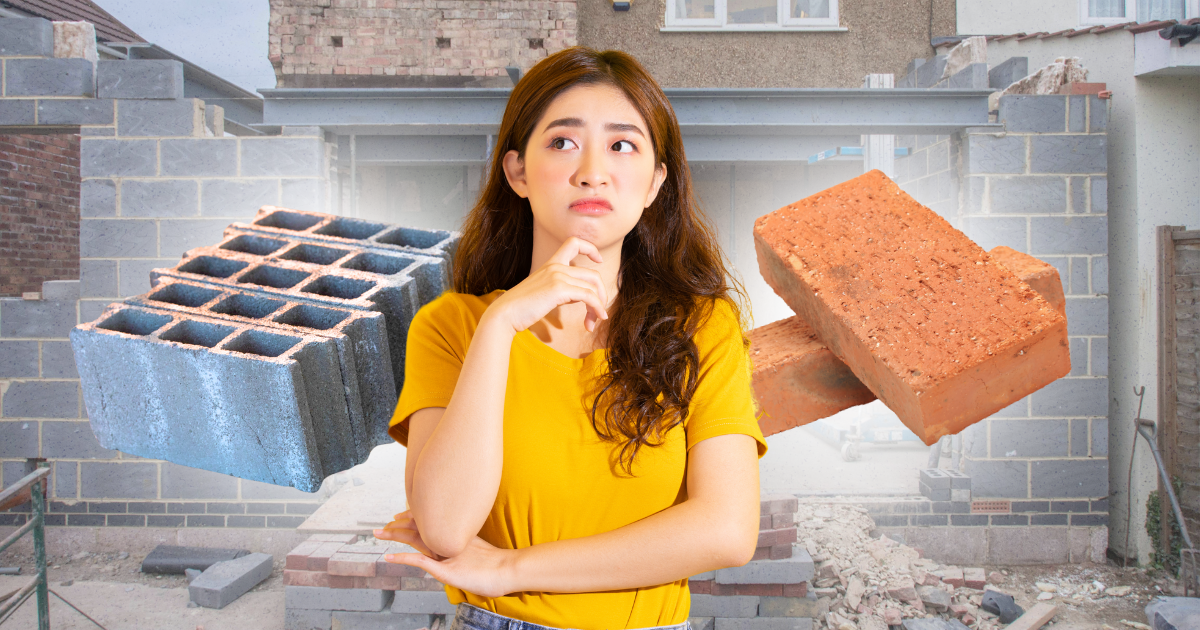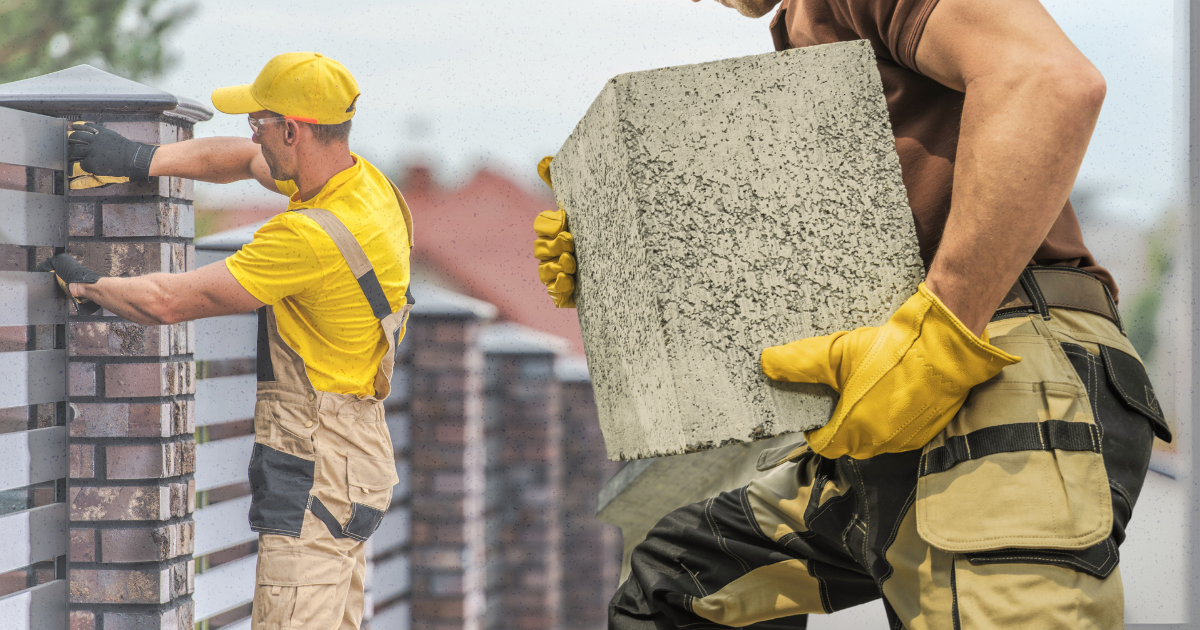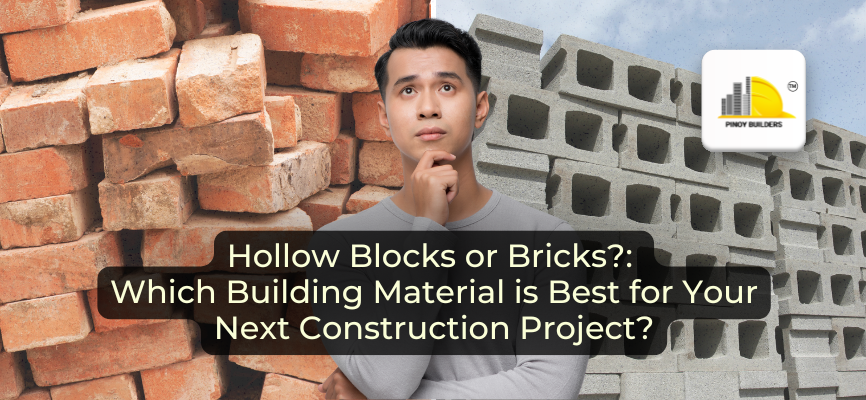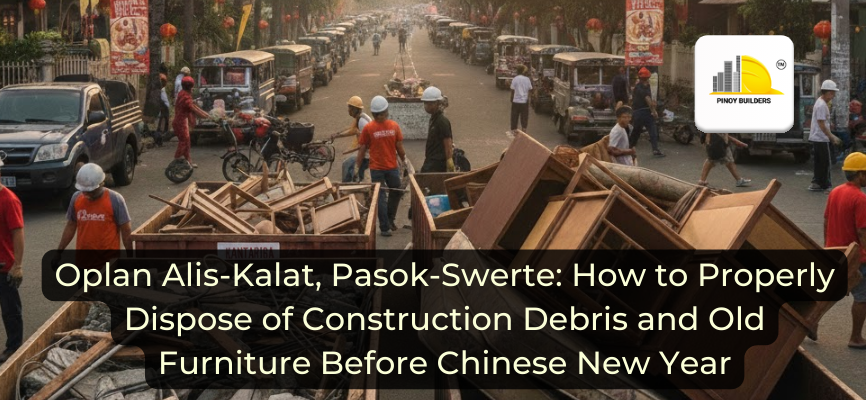Choosing between hollow blocks and bricks can impact the strength, durability, and cost of a construction project. Both materials are widely used, each with its benefits. Some builders prefer the affordability and ease of installation that come with hollow blocks, while others favor the solid structure and classic appeal of bricks.
In this article, we’ll compare these materials based on key factors like strength, durability, insulation, and cost. Whether you’re building a home, a commercial space, or a small renovation, this guide will help you decide which option best fits your needs.

Hollow Blocks vs. Bricks: Which Building Material Is Best for Your Next Construction Project?
Strength and Durability
Both hollow blocks and bricks offer structural integrity, but they perform differently under various conditions.
| Feature | Hollow Blocks | Bricks |
| Density | Lightweight, reinforced for added strength | Naturally dense and compact |
| Load Capacity | Suitable for load-bearing walls but may need additional support | Handles heavy loads without extra reinforcement |
| Weather Resistance | Requires sealing to prevent moisture absorption | Highly resistant to extreme weather |
| Fire Resistance | Fire-resistant but may crack under extreme heat | Naturally fireproof and heat-resistant |
Which Material Is Stronger?
High-rise buildings commonly use hollow blocks because they are lighter and easier to reinforce with steel bars and concrete. Bricks, on the other hand, have natural density and durability, making them excellent for long-lasting structures that need to withstand harsh conditions.
Generally, bricks have superior durability. However, hollow blocks, when reinforced properly, can match their strength. For projects that need quick construction without compromising support, hollow blocks work well. Bricks, on the other hand, are better suited for structures requiring long-term durability.
Cost and Construction Efficiency
The total cost of a building project isn’t just about material prices; labor and installation time also play a role. Here’s a breakdown of the cost and efficiency differences between hollow blocks and bricks.
| Cost Factor | Hollow Blocks | Bricks |
| Material Cost | More affordable due to larger size and fewer materials needed | More expensive due to smaller size and material density |
| Labor Cost | Faster installation but requires skilled workers for reinforcement | Labor-intensive due to manual stacking and mortar application |
| Long-Term Savings | Lower initial cost, but may need repairs over time | Higher upfront cost, but long-lasting and low maintenance |
Best Applications for Each Material
The two materials offer distinct features, making each better suited for specific applications. They excel in different types of construction, such as
| Application | Hollow Blocks | Bricks |
| Best For | Commercial buildings, warehouses, modern homes | Traditional homes, historical restorations, aesthetic designs |
| Ideal Structures | High-rise buildings, partition walls | Houses, fences, and structures in extreme climates |
If the goal is a contemporary, large-scale project, hollow blocks are the practical choice. For classic, aesthetically pleasing structures that require long-lasting durability, bricks are the better option.
Sustainability and Design Considerations
Both materials can contribute to sustainable building when used wisely. Hollow blocks made from aerated concrete reduce material waste and improve insulation, lowering energy costs. Recycled bricks offer an eco-friendly alternative while maintaining their strength and aesthetic appeal.
Incorporating natural elements like green walls, landscaped areas, and eco-friendly finishes can further enhance the sustainability and design of both materials.
Proper planning and material selection can reduce environmental impact while improving the overall look and functionality of a structure.
The Building Blocks to Making the Right Choice

The best building material depends on your budget, project type, and long-term goals. Hollow blocks are an affordable option with easy installation, making them ideal for modern, large-scale projects. Bricks, though more expensive initially, offer superior durability and aesthetic appeal.
Beyond cost, factors such as climate, structural needs, and sustainability should also influence your decision. By taking these factors into account, you can select a construction material that meets your specific needs and is both durable and economical.
References
Asian Concreto. “Hollow Blocks or Bricks: Which one is cheaper and better?” Asian Concreto, https://www.asianconcreto.com/blog/hollow-blocks-or-bricks-which-one-is-cheaper-and-better/. Accessed 4 April 2025.
Patel, Hemali. “Bricks vs Hollow Concrete Blocks: Which are Better for Construction?” https://www.bricknbolt.com/blogs-and-articles/construction-guide/bricks-vs-hollow-blocks.










